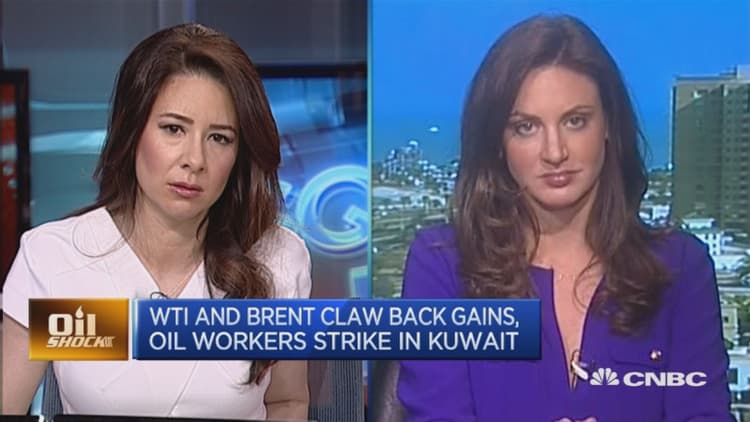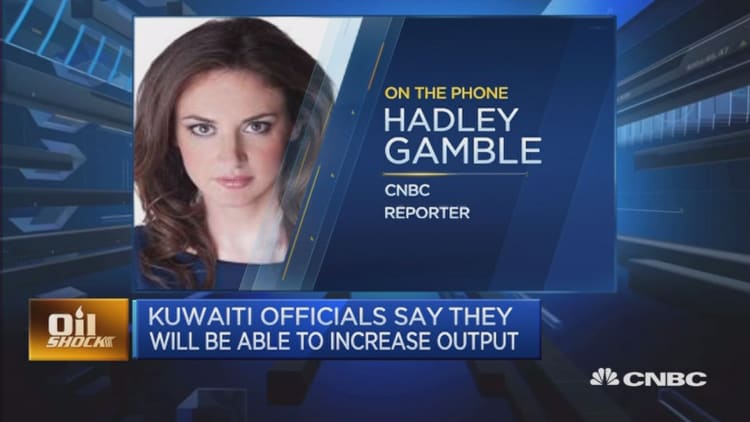


Crude oil prices tumbled as much as 5 percent on Monday after the Doha "no deal," but staged a turnaround later in the session and traded higher on Tuesday.
Analysts attributed the rebound to the start of an open-ended oil workers' strike in Kuwait over the weekend that reportedly involves around 7,000 employees. The government-owned Kuwait Oil Company tweeted on April 17 that crude production had fallen to around 1.1 million barrels per day (mb/d) as a result.
The country typically produces 2.86 mb/d, according to OPEC, of which Kuwait is a member.
"The strike has had the effect of blunting some of the downward momentum in crude oil resulting from the failure of major oil exporters to reach an agreement on a production freeze in Doha yesterday. But a quick resolution of the strike could result in another selloff," Coline Schep and Greg Priddy, analysts at risk consultancy Eurasia Group, said in a report on Monday.
and WTI crude futures traded higher at 7 a.m. ET on Tuesday by around 1.8 percent and 1.4 percent respectively. Both were above the psychologically important $40 per barrel mark, which light crude fell below on Sunday.
The oil workers are striking because the Kuwaiti government plans to cut or freeze their wages and benefits in line with pending public sector salary reforms, according to Eurasia.
The government is likely to compromise on most of the workers' pay demands, due to pressure from trade unions, the consultancy said.
In the meantime, Eurasia saw oil production partially recovering, as non-striking staff is redistributed and inventories are drawn open.
"In the lower-likelihood scenario that the strike drags on, the state oil company would probably call in foreign staff to support continued operations," Schep and Priddy said.
On Monday, Goldman Sachs warned that crude could sell off sharply again if the Kuwait disruption proved smaller than expected.
"Either way, we believe that the weekend headlines will further support the already high level of price volatility," Goldman analysts said in a report.

